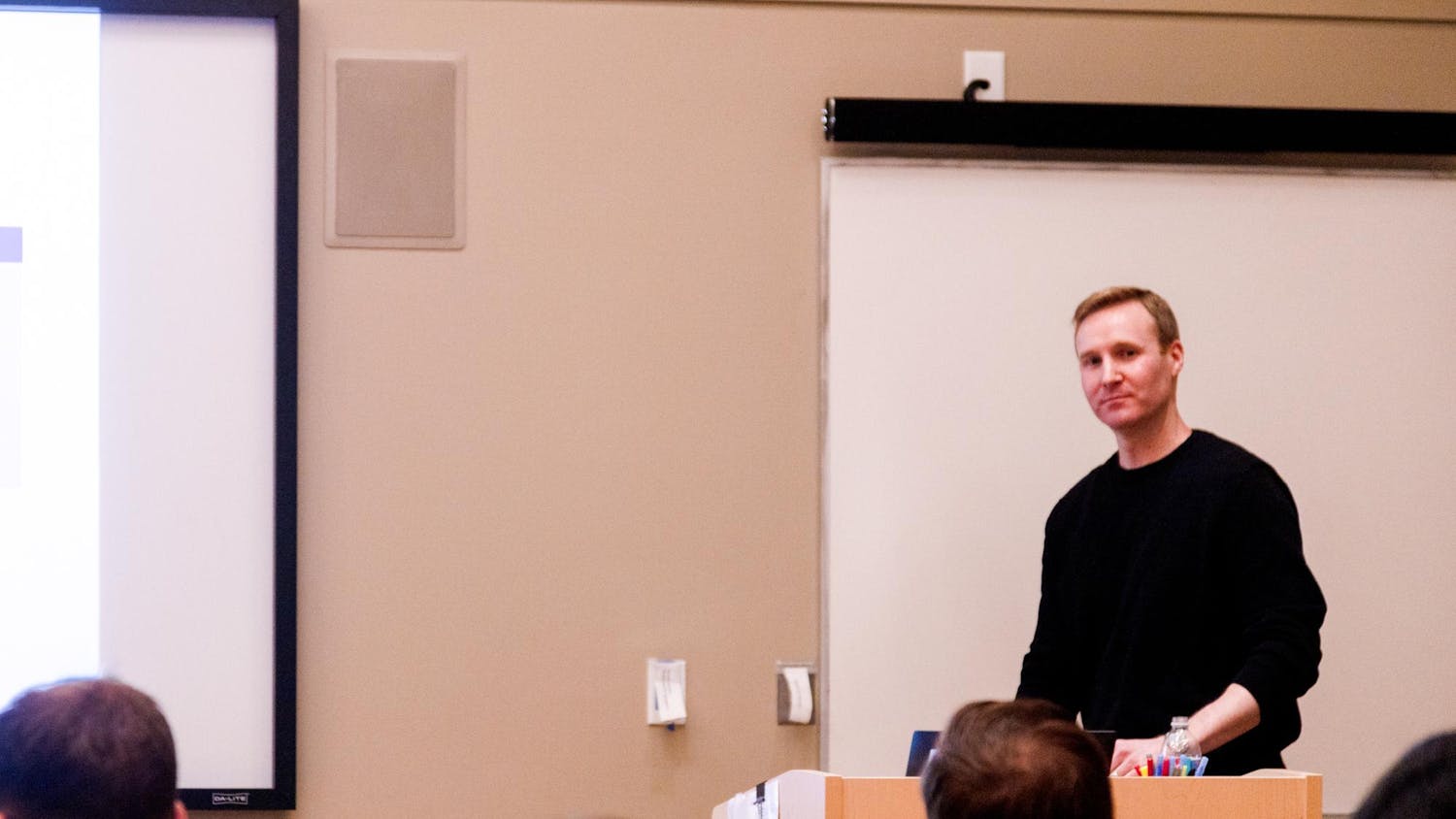This story is part of The Herald's coverage capturing community reactions to the University Hall sit-in on Nov. 8. To read more coverage, click here.
Twenty Brown students were arrested Nov. 8 following a sit-in at University Hall demanding that President Christina Paxson P’19 P’MD’20 commit to supporting a divestment of the University’s endowment from “companies that enable war crimes in Gaza.” The students — part of a new group BrownU Jews for Ceasefire Now — also called for the University to publicly support a ceasefire in Gaza.
The demands came amidst Israel’s response to Hamas’s Oct. 7 attack on southern Israel, which Israeli officials say killed 1,200 people. The Israeli response — which includes airstrikes, escalated blockades and a ground invasion — has killed more than 11,000 people in Gaza as of Nov. 14, according to Gaza’s Health Ministry.
After being arrested by the University’s Department of Public Safety, the students were released from custody on the same evening and now face charges of willful trespass, according to Amanda McGregor, a University spokesperson.
The students have an expected court date of Nov. 28, organizers previously told The Herald.
Here’s what to know about what took place Nov. 8:
Who are the students who were arrested?
Several members of BrownU Jews for Ceasefire Now published an open letter in The Herald Nov. 7 standing in solidarity with Brown Students for Justice in Palestine and the Palestine Solidarity Caucus. The group, which was not publicly known before the letter, released a statement the next day as they began their sit-in.
Jews for Ceasefire Now, which is not an official Brown-affiliated club, encompasses over 90 students, including the 20 who participated in the sit-in.
What were the students demanding?
In its Nov. 8 Instagram post, the group stated they would not leave the building until “Paxson publicly commits to include and support a divestment resolution in the next meeting of the Brown Corporation,” which is the University’s highest governing body.
The demands called for the resolution to be based on a 2020 report from the University's Advisory Committee on Corporate Responsibility in Investment Policies, which recommended that the University divest from “any company that profits from the Israeli occupation of Palestinian land.” ACCRIP was later replaced with a successor body, the Advisory Committee on University Resources Management.
Paxson has previously rebuffed calls for divestment.
At a Nov. 7 faculty meeting, Paxson declined to comment on a faculty letter calling for a ceasefire while affirming the University’s commitment to free speech and expression on campus.
What happened during the sit-in?
JFCN began the sit-in during a walkout with similar demands organized by Brown Students for Justice in Palestine and the Palestine Solidarity Caucus, which attracted more than 400 students.
A live stream from inside University Hall showed students singing hymns, holding banners and reiterating their demands. That afternoon, administrators informed the group that the sit-in would not lead to Paxson submitting a divestment resolution to the Corporation.
As the afternoon progressed, University administrators issued multiple warnings to the students. Administrators “were committed to ensuring that the students fully understood that they would not be allowed to remain in the building after normal operating hours for security reasons, and that they could face disciplinary action” for violating University policies, as well as “arrest for trespass after the close of business,” University Spokesperson Brian Clark previously wrote in an email to The Herald.
“After offering students every opportunity for a different outcome, Brown issued multiple trespass warnings and ultimately moved forward in arresting approximately 20 (students) who refused to leave a campus building where their presence after operating hours posed security concerns,” Clark wrote.
Students were arrested beginning at 5:45 p.m. and were taken downtown in Providence Police vans for processing. The arrested students were released the same night.
What are the stakes?
Willful trespassing carries up to a $1,000 fine in Rhode Island and/or a year of jail time, though far less severe punishments — including the incident being wiped from the students’ criminal records — are possible, The Herald previously reported.
The University’s protest and demonstration policy states that “protest is a necessary and acceptable means of expression within the Brown community.” It goes on to state that “protests or demonstrations that infringe upon the rights of others … or that interfere with the rights of others to make use of or enjoy the facilities or attend the functions of the University cannot be tolerated.”
Failure to follow the University’s code of conduct can lead to disciplinary action, including “civil and criminal charges” in some circumstances, according to a letter sent to the University community by Provost Francis Doyle.
Clarification: This article has been updated with further details about what administrators told students in University Hall.
Staff from The Brown Daily Herald





